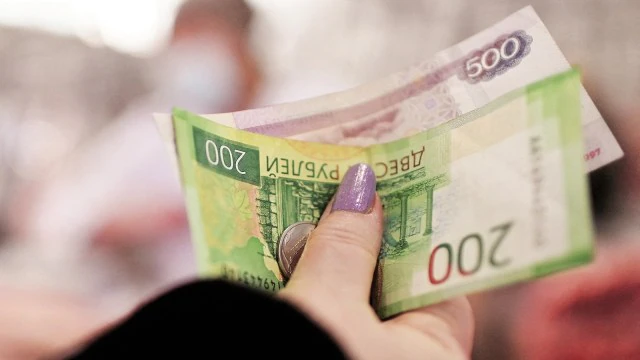Amrutha Avasarala, Pune
India’s key financial regulators are in the process of decision-making on the Rupee-Ruble trade expansion amid the current situation Russia is in on the global front.
According to a recent government stocks ownership analysis, ECGC Ltd retained Russia’s ‘high risk’ rating on its country risk assessment list. As per the analysis, the market regulator, the Securities and Exchange Board of India, restricted Sberbank’s FPI (Foreign Portfolio Investor) license to trading only in WTI oil and natural gas derivatives. The bank was not a part of the Reserve Bank of India’s e-rupee pilot project too.
Though a few of these issues were addressed during Prime Minister Narendra Modi’s recent visit to Russia, letters requesting comment from the RBI and SEBI on the current situation were not responded to.
According to sources, Sberbank AG sought a licence from the RBI to export 100 tons of Russian gold bars to India and sell them directly to jewellers in national currencies. The RBI denied its application for an import permit in December 2023 in March of this year, citing “supervisory concerns”.
The Russian counterpart also stated that the 15% import tariff on Russian gold is 1% higher than that on UAE gold, which is 14% with regard to India’s bilateral arrangement with the West Asian country. Russia is looking forward to a similar mechanism with India.
Though the Ministry of External Affairs and the Indian Embassy in Russia advocated for a review of the ECGC’s country risk rating list, it remains at the C2 – or high-risk level. Sberbank AG requested a review and reanalysis of the situation, claiming that the ECGC’s risk assessment model doesn’t account for the transactions in national currencies. No alterations were made to the list even after receiving assurance of no risk from the Russian side.
There is a lack of clarity in the information about the inclusion of Russia as a member of the Financial Action Task Force at the regulators, SEBI and RBI’s end. Their membership was halted after the Russian attack on Ukraine in 2022. Sberbank has requested the government to provide clarification to regulators since they are still a member of the FATF.
Moreover, Russian players, particularly banks, have complained about problems accessing Indian government websites, as well as those of the RBI and SEBI, due to digital restrictions. To establish normal exchanges, one of the priorities was a request for unrestricted access to Indian websites.
Sberbank stated that working on these fronts will help to expand rupee-rouble trade, particularly commodity trading and dividend payments to Indian businesses for their Russian ventures.
